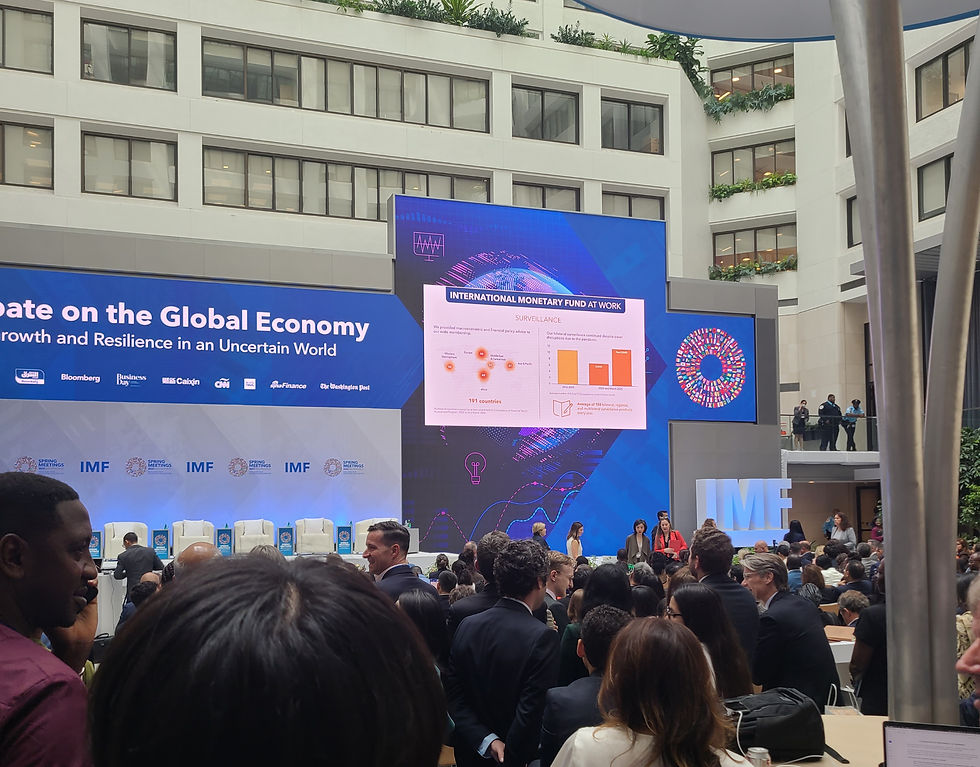It's Time for Developing Countries to Refocus on Growth
- Brian Ezeonu, Ph.D.

- Jul 19
- 2 min read
BRIAN EZEONU, Ph.D. | April 27, 2025

Last week’s World Bank/IMF Spring Meetings made one thing clear: in a world still grappling with the aftershocks of the Covid-19 pandemic and the global market disruptions unleashed under the current Trump administration’s chaotic trade policy era, countries are reassessing their economic strategies with urgency and realism.
Germany, for instance, is embracing fiscal expansion, building on policies initiated during the pandemic, to stimulate recovery and offset the energy cost spike caused by the loss of Russian energy supplies. The United Kingdom, facing tighter fiscal constraints, is taking a different approach: prioritizing improved trade relations with the European Union and the United States to stabilize its economy. Argentina, meanwhile, is betting on deregulation and spending cuts to unleash its private sector and revive growth.
Developing countries, especially in Africa, must learn from these tailored, focused responses. The era of trying to simultaneously pursue numerous Sustainable “Distraction” Goals must come to an end. Poor nations cannot afford to dilute their efforts across a wide array of priorities. History shows that rapid economic advancement comes from a clear focus on human capital development (education and health) and growth-driven policies that lift millions out of poverty. This proven path moved countries from low-income status to middle-income and emerging economies. It is time to return to it.
Ajay Banga, President of the World Bank, articulated this renewed focus in a recent op-ed:
"The World Bank was not born of altruism, but of strategic design. Its original purpose, shaped by U.S. interests, was to forge a global economic landscape ripe for private sector investment. This wasn’t charity—it was a calculated move to promote economic growth and prevent instability... During the past two years of reform, we have refocused on our core mandate: driving development and reducing poverty."
Some in the international community may insist that it’s possible to "walk and chew gum at the same time”, pursuing poverty reduction alongside a sprawling list of other goals. But the hard truth is that developing countries do not enjoy that luxury. Wealthy nations, having already achieved widespread prosperity, can afford to multitask. Poor nations cannot.
The priority for developing countries must now be singular and urgent: foster sustained economic growth, drastically reduce poverty, and then, and only then, expand attention to other global ambitions.


Commentaires